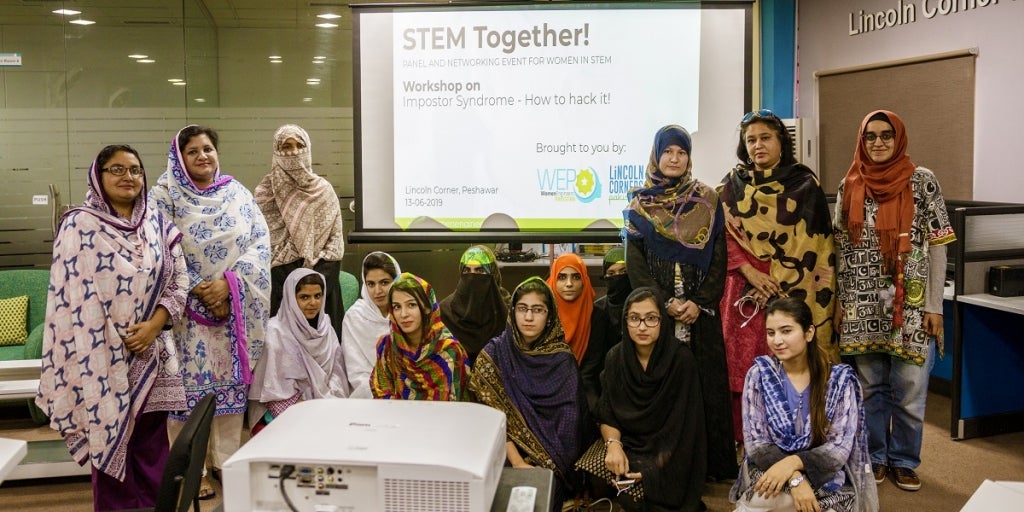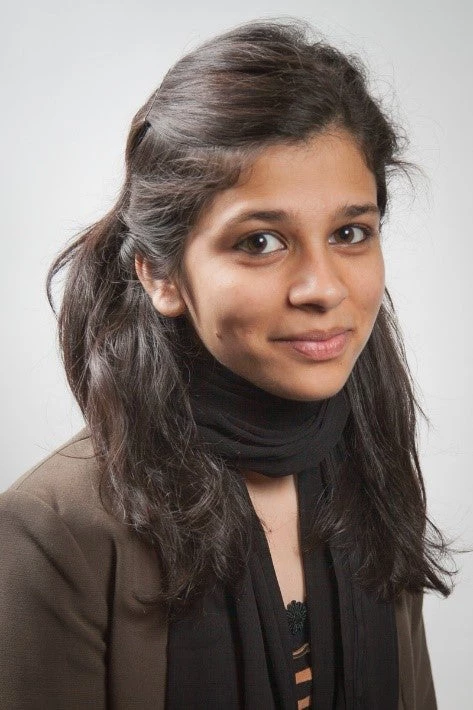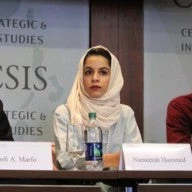 Learning session at WEP
Learning session at WEP
As women CEOs in Pakistan, we have seen and heard it all when it comes to practices and behaviors that discriminate against working women.
To name a few: the absence of sound policies for safer workplaces, disregard for inclusion, and of course, the frustration of being the only woman in any given company.
But while these issues affect female workers everywhere, they are even more pressing for women in science, technology, engineering, and mathematics (STEM).
According to a recent World Economic Forum report, the share of women in computer and mathematical jobs is 23 percent, and a mere 11 percent in architecture and engineering jobs .
This is even worse in Pakistan, where women hold only 4.9 percent of engineering supervisory roles.
In energy transmission and distribution, only 3 percent of engineers are female.
But there are ways to turn the tide, and events like the recent WePOWER first regional conference in Nepal have become springboards to promote female practitioners in the power sector and inspire more young women to seek jobs in STEM.
Advocating for more female representation, WEP routinely highlights relatable female role models who have successfully shattered the proverbial glass ceiling.
WePOWER has brought welcome visibility to grassroots organizations like ours, which have sought to introduce a paradigm shift for women interested in STEM careers in Pakistan.
For example, the company I (Ramla) founded, Women Engineers Pakistan (WEP), is an active network of over 1,100 professional women in STEM fields that promotes STEM education for young women in Pakistan.
This year, WEP conducted multiple STEM and game-based learning sessions for more than 500 female students in Peshawar and Quetta, including at the WePOWER conference.
We have launched a digital skills mentorship program, which paired eight young women with mentors from the WEP network.

This approach is critical as few young women interested in science and technology have role models to emulate or seek guidance from.
One such story is that of Zartaj Waseem, who struggled with math in school but is now the CEO and Founder of the Pakistan Space Science Education Centre (PSSEC).
Another trailblazer is Ayesha Tabassum, a WEP veteran member who trained several young women in design and development last year in Lahore. Many of her trainees immediately got internships or freelance jobs.
WEP also maintains an active Women in STEM database, which can match best-suited candidates to job openings. Furthermore, the network has held software and coding workshops, seminars, conferences, and industry tours.
Leveling the playing field for women in STEM, will not only open more opportunities for them but also provide Pakistan’s energy and power sectors with a large pool of untapped talent.
WEP now has a presence at 13 institutions of higher education across Pakistan.
Recently, together with local partners, WIE organized a 4-day training program for Female Solar Technicians to bridge the skills gap.
Thanks to our strategic partners, organizations like ours are making great leaps to inspire and nurture a new generation of working women in the STEM field in Pakistan and across South Asia.
But there is no turning back as leveling the playing field for women in STEM, will not only open more opportunities for them but also provide Pakistan’s energy and power sectors with a large pool of untapped talent.



Join the Conversation